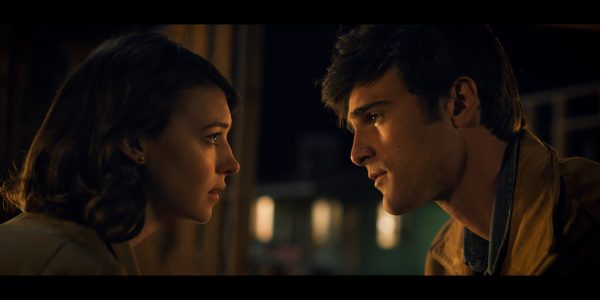Harbor Lights had a storied history. The DA was determined to put an end to itby Don Ruane March 1941, 5 a.m. Every morning for the past week, a dinghy has been spotted just west of the Monstand Pier. It remains stationary for only a minute or two while its sole occupant faces the beach. He picks up a lantern and quickly turns it off and on three or four times. The boat then starts up and heads south, disappearing into the South Bay morning mist. There was a lot of excitement building at the Redondo Pier. The steamer Harbor Lights announced its inaugural trip on the run from Los Angeles to San Francisco, with stops in Redondo and Santa Barbara. The Herald Examiner had reported that the former gambling ship, had been gutted of any reminder of its lively past, and was now billed as ” the most luxurious ship traveling the West Coast ” Solid oak floors and all-electric lights, along with crystal tableware were part of the features advertised to prospective passengers. This attracted many of the rich and famous of the day to participate in its maiden voyage. The manifest included the cast and crew of “The Maltese Falcon,” who were going to board in Redondo and head to the World premiere of the movie in San Francisco, at the Bayview Opera House. This amount of star power would certainly generate enough world press coverage to guarantee the success of this route for a while. Celebrity star power also includes the criminal element, a public fascination with characters in the underworld, and a public that is torn between the hopes that the suspect gets caught, and the idea that what the suspects were doing really isn’t a crime since nobody’s getting hurt. The passenger manifest also included District Attorney Herb Clifford, and a guest, the recently convicted Captain of the Harbor Lights, Michael Roselli. Clifford, who just two years earlier, led a raiding party of 50 sheriff’s deputies, IRS agents, and Coast Guard personnel to raid the Harbor Lights in order to seize the gaming tables and slot machines, plus confiscate cash that was in the registers and on the table. The dealers and cashiers had been told if a raid was ever to take place, they were to destroy or throw overboard the tables and machines because they had all been rigged in favor of the house. If the ship had been caught with these, word would get out to customers, and the offshore casinos would’ve lost its annual $8 million of untaxed cash. In this case, there was very little warning of approaching law enforcement because the shore boats and crew were simultaneously being detained associates of the DA. There was so much furniture, machines, and seaman’s chests being thrown overboard that it created a legendary fishing and lobstering spot. Once in a while, usually around the beginning of lobster season, a silver coin, a playing card or two, and some gaming chips are seen floating on the surface, years after they’d been sent overboard Clifford thought it’d be good publicity for his office, and one more slap in the face to his charge if Roselli was transported as a prisoner aboard a ship that he used to own, handcuffed to a chair and leg irons to make any lower body movement impossible. Even more infuriating, the DA mentioned to Roselli that he knew all about his friend in the dinghy, as he’d been picked up yesterday once he arrived at the dock. While waiting a couple of hours before passengers were to board at Redondo, the DA fell asleep. Roselli seized the moment, grabbing a heavy crystal ashtray with both hands, struck Clifford in the back of the head and rendered him unconscious. Roselli reached into Clifford’s pocket and grabbed the keys, one of which unlocked the handcuffs. But none of the others unlocked the leg irons. That left only one choice: to make way for the outside deck, jump overboard, and hopefully swim to shore. This may have sounded like a good idea at that instant, the leg irons still attached along with the heavy clothes he was wearing made it impossible to swim. The ship’s crew heard the splash and put the “man overboard” protocol into place. One crew member would throw a life buoy, while a second would keep his eyes on the swimmer in distress As the ship was anchored, it was quick work to lower a lifeboat and point it toward the life buoy, but it was too late. He was gone. No ripples in the water meant he went straight down. Not much of a recovery effort was made, a quick dive by a crew member but that was it. The Harbor Lights was on its new mission, and everything associated with its old life now rests on the ocean floor. ER |










